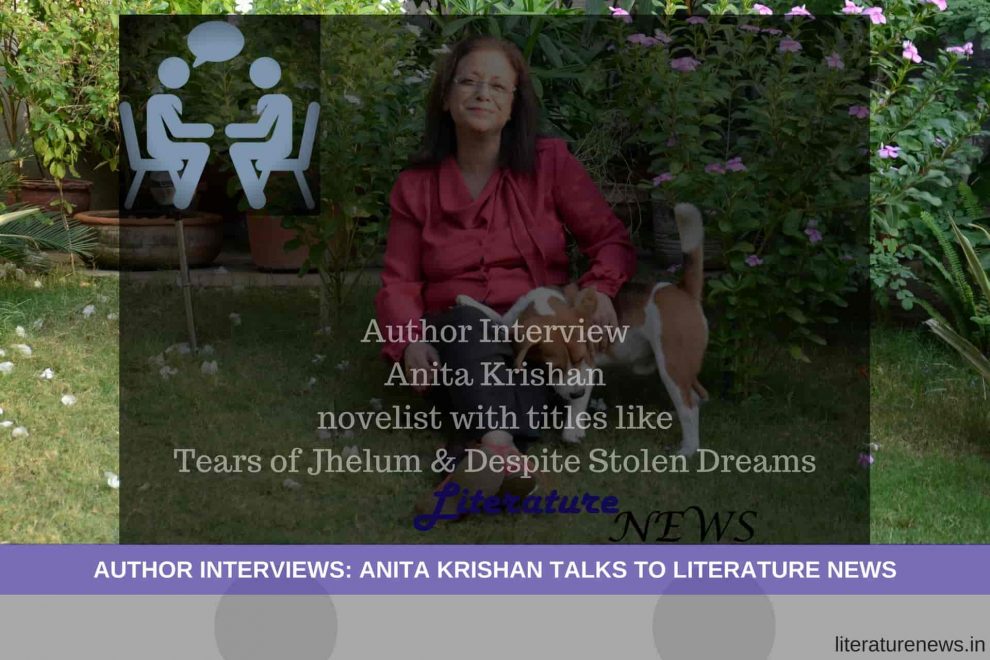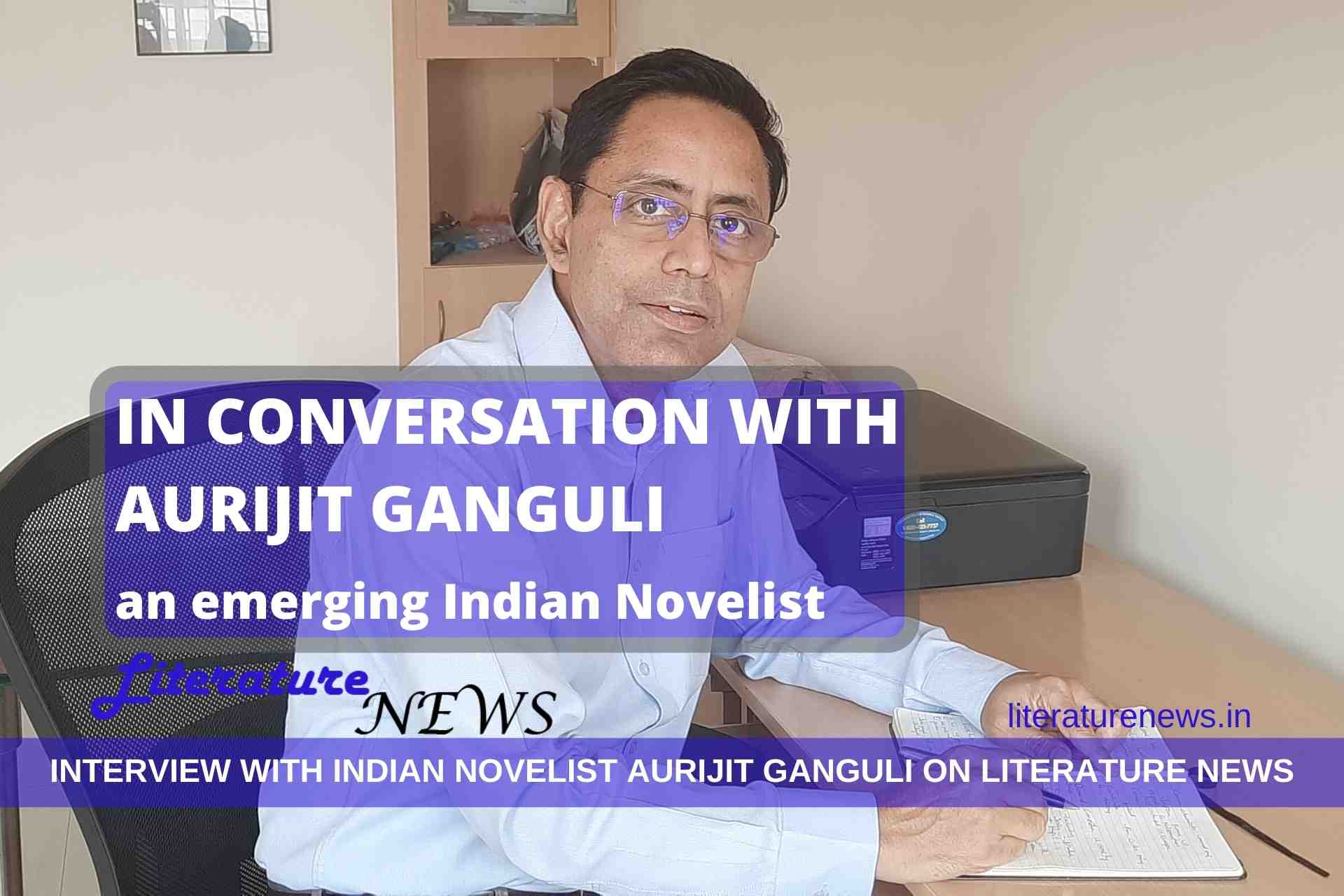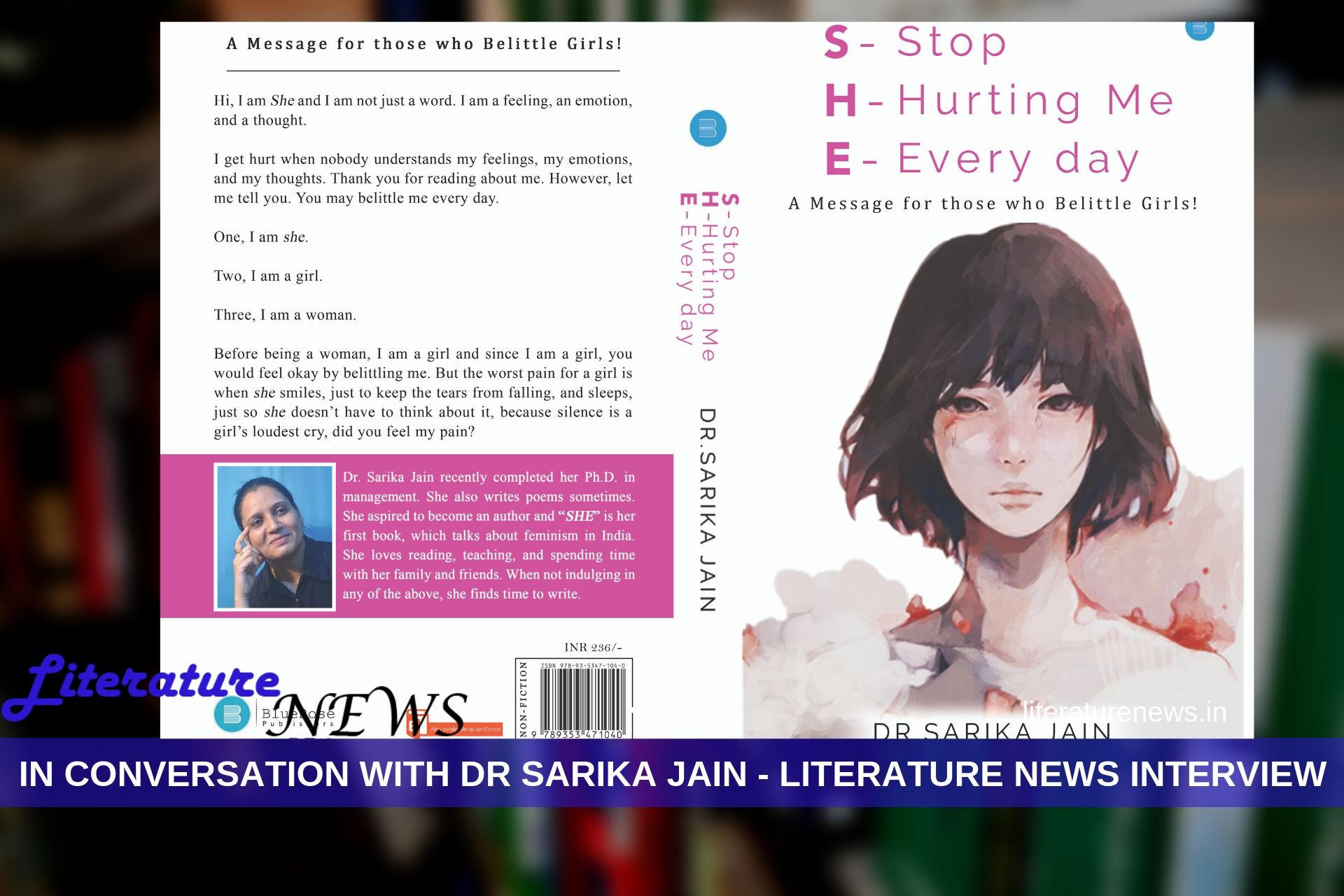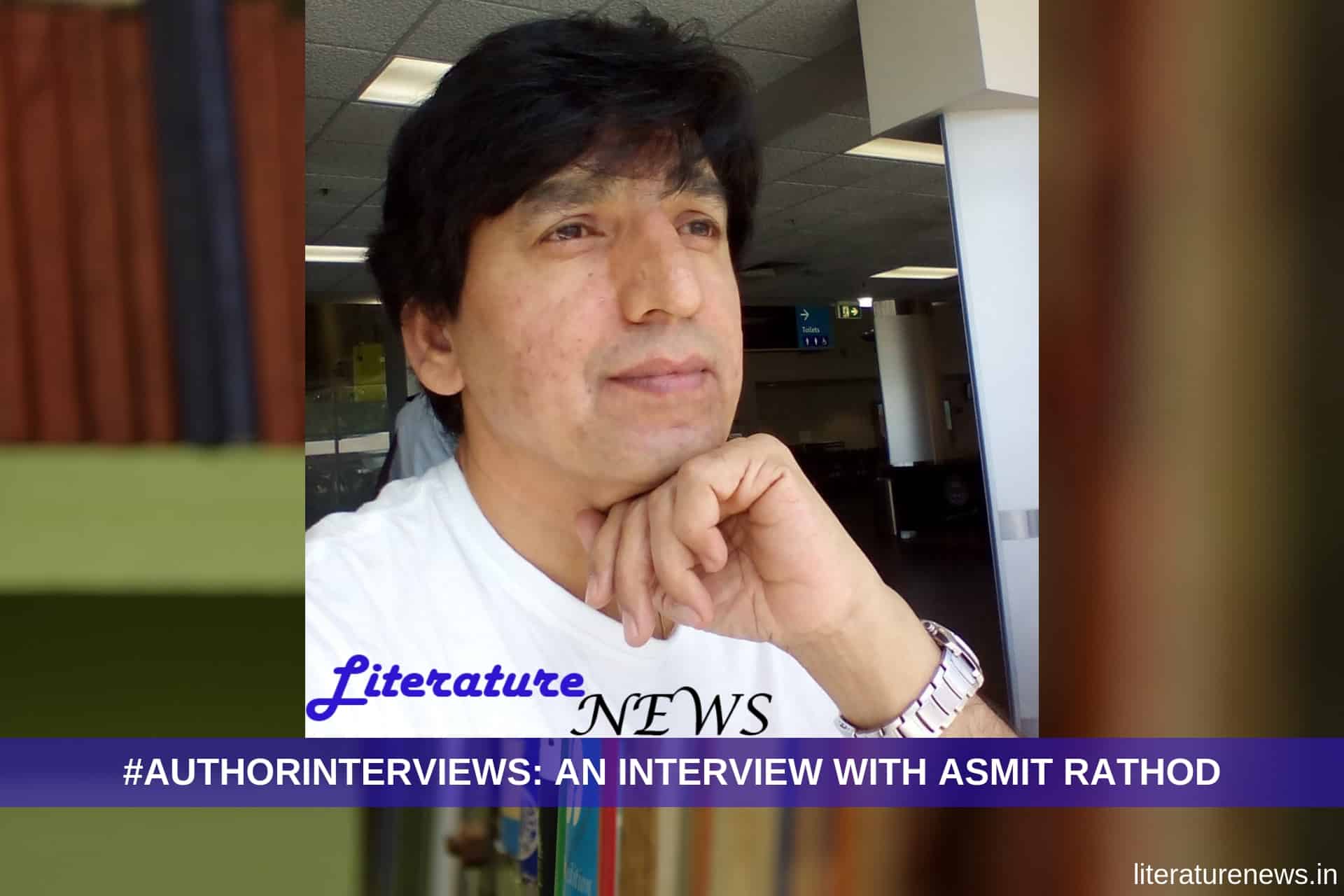Amit Mishra from The Indian Authors talks to the popular Indian novelist Anita Krishan. Anita Krishan in this interview talks about her books Despite Stolen Dreams and Tears of Jhelum and others as well as her writings in various genres and her future plans.
Amit Mishra: What inspired you to write Despite Stolen Dreams, Anita? Let’s begin with the very beginning and we will move to other aspects.
Anita Krishan: At the time ‘Tears of Jhelum’ was published, writing a sequel was not at all under my deliberation. Queries from the readers regarding the fate of some characters made me realize that the readers were demanding more. That sowed the seeds for writing ‘Despite Stolen Dreams”.
Amit Mishra: Why did you think to choose a different and rather literary course, Anita? The trend, as we all know, is writing half-romantic and half-erotic literature which sell in big numbers. The reason behind your rather different choice?
Anita Krishan: I personally do not like to read books that are based on triviality. Many a time, I have to leave so called trendy books halfway through, because they are simply not my cup of tea. So, I write what I like to read.
Amit Mishra: Let’s talk about your oeuvre, Anita! It’s magnificent, to be sure and honest! I have been a reader for so long but I seldom came across something of this height in the contemporary period. What’s you writing process? Please be a little illustrative.
Anita Krishan: The writing style comes naturally and effortlessly. Once I have the basic idea of the story in mind, I allow my imagination a free run, making sure my story flows smoothly, without jerks. I try to make my characters as alive and as real as possible.
Amit Mishra: Coming to the work at hand, Anita, Despite Stolen Dreams is some sort of a vision as well, other than being a fine novel. However, do you think that terrorism can be defeated by affection? What’s your personal opinion on this?
Anita Krishan: It is a known fact that for every terrorist eliminated, ten new ones have risen to take the place. Blood for blood has always caused more pain and more destruction. Isn’t it high time we find more amiable and more humane solutions whenever possible?
Amit Mishra: Did you read literature based on terrorism in the Kashmir valley and other places prior to writing this novel as well as the previous one – Tears of Jhelum? Of it’s just your own effort all the way?
Anita Krishan: Who is not affected by unwarranted killings by the terrorists? Ever since the division of India in 1947, Kashmir has been the hotspot of the world politics. The chaos of opinions and instigation from across the border have affected none other than the common man of the valley. And, I have closely followed the building up of the conflict.
I did read a few books based on Kashmir but would like to mention just the two. One is ‘My Moon has Blood Clots’ by Rahul Pandita and the other ‘The Curfewed Night’ by Peer Basharat. The former highlights the painful exodus of Kashmiri Pandits from the valley they had inhabited for almost 3000 years, and the latter speaks of the atrocities suffered by the Kashmiri Muslims as an aftermath of 1989. So, I wanted to write something not based on discordant notes, but that should unite people into one fraternity, and propound peaceful solutions.
Amit Mishra: Let’s talk about the language part of the contemporary fiction, Anita. What do you think honestly? Is Indian fiction anywhere near the world fiction standards? What I feel is that we have let our standards lower ourselves – the new generation of authors hurriedly conveys the ideas to the readers without taking any moment to think about the medium. Your novel, on the other hand, is rather well-written and it is just wonderful on the narrative front. I would like your detailed opinion on why language is an important part of the fiction.
Anita Krishan: I too feel that not many contemporary writers are paying much attention to the language aspect of their writings. In the name of modernism, they don’t hesitate using profane language.
The diction used should rather be polished than crass. I feel it is an author’s duty to expose the readers to the beauty of the good prose. Hurriedly written books may sell but will not last like the forever-green classics.
Amit Mishra: Now, about the book market and its ways, Anita, how difficult do you think that the market has become for the authors who write quality literature? What we are seeing is that the second-rank fiction is selling good but standard literature isn’t catching up the pace. As an author, what would you say on this? And by the way, even after this tough competition and opposite algorithms in the market, your books have sold well! That’s a good sign for the literature lovers!
Anita Krishan: You are right in saying that quality literature is hard to sell. I wonder how many good books just slipped into oblivion in the disarray of popular yet substandard books. On the other hand, the true literature lovers always want to read quality books.
It is just a matter of being discovered.
Amit Mishra: Tell our readers about genres other than the novel that you write. What kind of poetry and plays have you written? Will we ever see your poetry collection in near future? Any plans for that, Anita?
Anita Krishan: I randomly write poetry; only when a sudden idea prompts an urge. Sometimes, I don’t pen any verse for months. Presently, it’s writing prose that I am more passionate about.
Amit Mishra: And before we wrap it up, Anita, what are further works by you about to come? What our readers can anticipate in the coming days?
Anita Krishan: I am currently working on altogether a different genre, the paranormal . . . the unanswered and unexplained phenomena that sometimes baffles even science.
I wish you all the best from my side as well as our team’s. Keep producing quality fiction and strengthening the modern Indian fiction always!
I wish to reach up to the expected standards of the readers of literature.
Thank you!






Add Comment